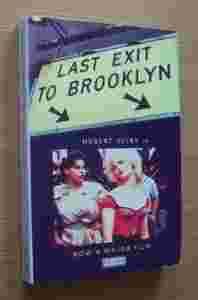| Few books have aroused so much strong feeling as Last Exit to Brooklyn, with reactions ranging from the highest admiration, through horror, pity and disgust, to the blind fury of those who are opposed to the exposure of social evil. Its merits, challenged first by private and then by public prosecution, have been tested in the courts. Those who have spoken for it, both as an original work of modern fiction and as a true documentary account of life in a section of Brooklyn, leave us without a doubt that it is one of the most important books of the post-war period. The characters who inhabit the book are unforgettable: Harry, the strike leader, who during his weeks of power discovers something of his true nature; Tralala, who rejects the only love she is offered and sinks swiftly to the lowest level of prostitution; Georgette, the 'hip queer' with pathetic aspirations to culture; Abraham, the 'cool ass' black stud, with his girls, his 'bigass' Cadillac, and his undernourished family; the debris of American civilisation, for whom the author ultimately makes us feel a profound compassion. Last Exit to Brooklyn was found obscene at the Old Bailey in November 1967, a decision which was reversed by a historic Appeal Court judgement in July 1968. Now this 'honest and terrible book', as Anthony Burgess describes it in his Introduction to this new edition, can take its rightful place as one of the major books of our time. |

